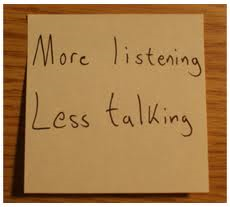
I was honored to attend the recent state education summit called by Florida Gov. Rick Scott. The governor invited a diverse group of elected officials, political activists, educators and parents to spend two and a half days discussing how best to implement the Common Core State Standards, a state assessment system to measure these new standards, public school grades and teacher evaluations.
The last time Florida convened such a group was in 1991, and it met monthly for seven years. I was a member of this earlier group for four years, so I was anxious to see how this new gathering would compare.
I was very impressed.
All the participants worked hard grappling with complex issues. Without exception, the large and small group dialogue was thoughtful and civil. People with opposing positions listened carefully to those they disagreed with, and sincerely sought common ground. This was democracy at its finest.
Pam Stewart, Florida’s interim commissioner of education, did a great job managing the summit. Gov. Scott wisely gave Pam the opportunity to prove she could lead, and she excelled. Pam will probably have the interim removed from her title at today’s State Board of Education meeting. She deserves this promotion, and Florida needs her leadership.
Despite all the rhetoric and theatrics surrounding Common Core, Florida has no intentions of not fully implementing these standards. The support for them at the summit was wide and deep. There will be no turning back, although Republican elected officials are wisely giving Common Core opponents, who represent a vocal minority of their political base, some opportunities to vent.
Florida’s state assessment system is going to be in transition for the next several years. Most school districts, as well as many charter and private schools, will initially use paper and paper tests to assess these more rigorous standards. Florida will need another four or five years before all the technology is in place to move the entire state to online assessments, but that’s where we’re headed.
The state’s public school grading system is also going to be evolving over the next four-to-five years.
Schools are complex social organizations and few people think a single letter grade accurately reflects a school’s quality. Most summit participants said school grades should become more granular in the future. That could mean elementary schools receive a grade for every grade level, and middle and high schools get grades for each subject-area department.
The political controversies surrounding school grades are not going away since it’s probably not possible to create a statewide system that is fair, accurate and transparent. On the other hand, minority and low-income students, in particular, have clearly benefitted from the state’s school grading system, despite its limitations and flaws.
Teacher evaluations face many of the same complexities as school grades. Creating a single statewide evaluation system for teachers that is fair and accurate may not be possible. I worked on this challenge for 15 years as a teacher union leader and eventually gave up.
District-employed teachers complain that objective data, such as standardized test scores, do not reflect all the nuances of classroom teaching and learning. They also fear the subjective judgments of their principals. But when we take subjective and objective data off the table, we have nothing left.
The most popular teacher evaluation initiatives today are attempting to find the proper balance between objective and subjective data. But as long as hiring and firing in school districts is centralized, public school teachers will be reluctant to embrace any evaluation system that has employment implications.
Charter and private school teachers are more comfortable with principal evaluations since hiring and firing in their sectors is school-based. They can just move schools if they are dismissed by a principal. District-employed teachers don’t have this option.
I hope future Florida governors follow the lead of Gov. Chiles in 1991 and Gov. Scott in 2013 and periodically convene diverse groups of citizens to have in-depth conversations about how best to improve public education. Too much of our public discourse today is conducted via snarky comments on social media. There is a role for this type of populist engagement in our democracy, but we also need time and space for more thoughtful dialogue.


